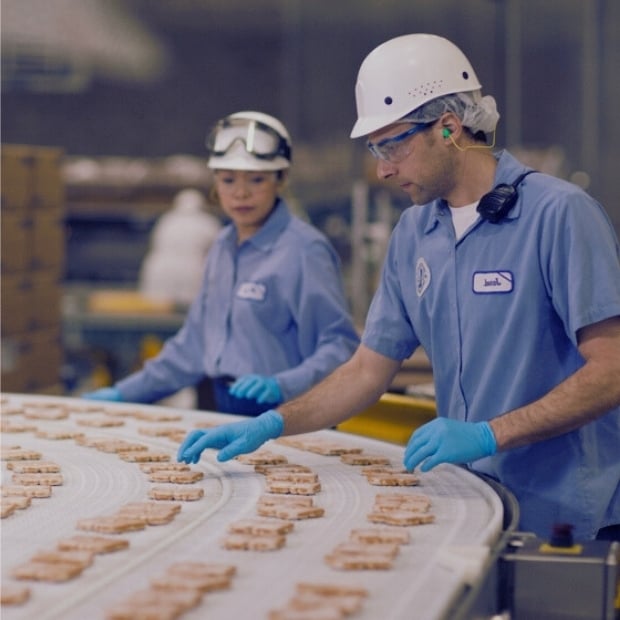How to Build a Custom Library of Digital Process Knowledge

You have probably seen evidence that employee engagement and productivity go hand in hand.
But if you're like other manufacturers, you may believe that moving the needle on either of these fronts is out of reach.
Fortunately, that's not the case.
In our previous post in this series, you learned how to get buy-in from your partially engaged frontline workers. That was the why.
Below, we’re going to unpack the how. You will learn how to build a custom library of digital process knowledge at your facility.
Tactic #1:
Optimize Information Access
Half of effective knowledge management is to capture, store and organize documents. Focus also on the distribution and discovery of information relevant to any role.
If you want to optimize your team’s collective repository of needle moving knowledge, then it must be easy to retrieve. Use digital solutions to integrate information from departments and functions throughout the entire organization.
Imagine Maria, a frontline worker in the assembly department. She encounters a complex issue with a new assembly line machine that's causing downtime in production.
Remembering the recent integration of a digital process knowledge library, she quickly navigates to the centralized system from her workstation tablet. Using intuitive search features, she types in a combination of local jargon and machine part names, uniquely understood by her team.
Instantly, a detailed guide, complete with troubleshooting steps specific to her issue, pops up.
The guide, a contribution from the maintenance department, provides a step-by-step resolution. Within minutes, Maria fixes the issue, avoiding prolonged downtime.
This efficient retrieval of cross-departmental knowledge not only empowers Maria to resolve issues swiftly but also fosters a sense of unity and resource-sharing across the organization.
Tactic #2:
Incentivize Knowledge Contributors
Modern manufacturers harness the collective intelligence of the organization. But they also provide workers with continuous visibility to the impact of their contributions.
People’s ideas for improving digital work instructions can’t be a one and done exercise. To build a culture of knowledge sharing, create a system where employees are rewarded for expanding the custom library.
Picture Jerry, a veteran operator, who developed a quicker, safer method for calibrating machinery. But he had kept it to himself, unsure of its reception.
When the company introduced incentives for contributing to the process knowledge library, Jamal decided to share his method. He created a detailed guide and submitted it. His innovation was quickly recognized by management and incorporated into the official procedures, with Jamal receiving acknowledgment and a reward for his contribution.
This recognition spurred a wave of contributions from other workers, each bringing their unique insights to common challenges. Jerry felt a renewed sense of purpose, seeing firsthand how his knowledge could help others and improve overall productivity.
Now that you understand the why and the how of building a custom library of digital process knowledge, your team’s output potential will skyrocket. Employees will be more engaged and more productive.
And your organization will be equipped to evolve faster than the competition.

Written by Scott Ginsberg
Looking to Learn More? Get in Touch with Us
Dozuki helps companies capture, standardize, and distribute process knowledge across their workers.
Related Posts
Blueprint for Brilliance: Takeaways for Joining the Ranks of the World’s Most Productive Companies
LNS Research recently released its 2025 Benchmarking the Journey of the World’s Most Productive Companies report, and the findings are a wake-up call for the industrial...
Continue ReadingThe Future of Manufacturing in 2026: Empowering the Connected Worker
Key Takeaways (The TL;DR) Connected worker initiatives will be central to driving efficiency, safety, and productivity in 2026. Manufacturing technology is advancing...
Continue ReadingWhy Workforce Agility Will Define 2026
In 2026, manufacturers won’t be judged solely by what they produce, but by how fast they can adapt. The year ahead brings a wide range of scenarios: cautious optimism...
Continue Reading
